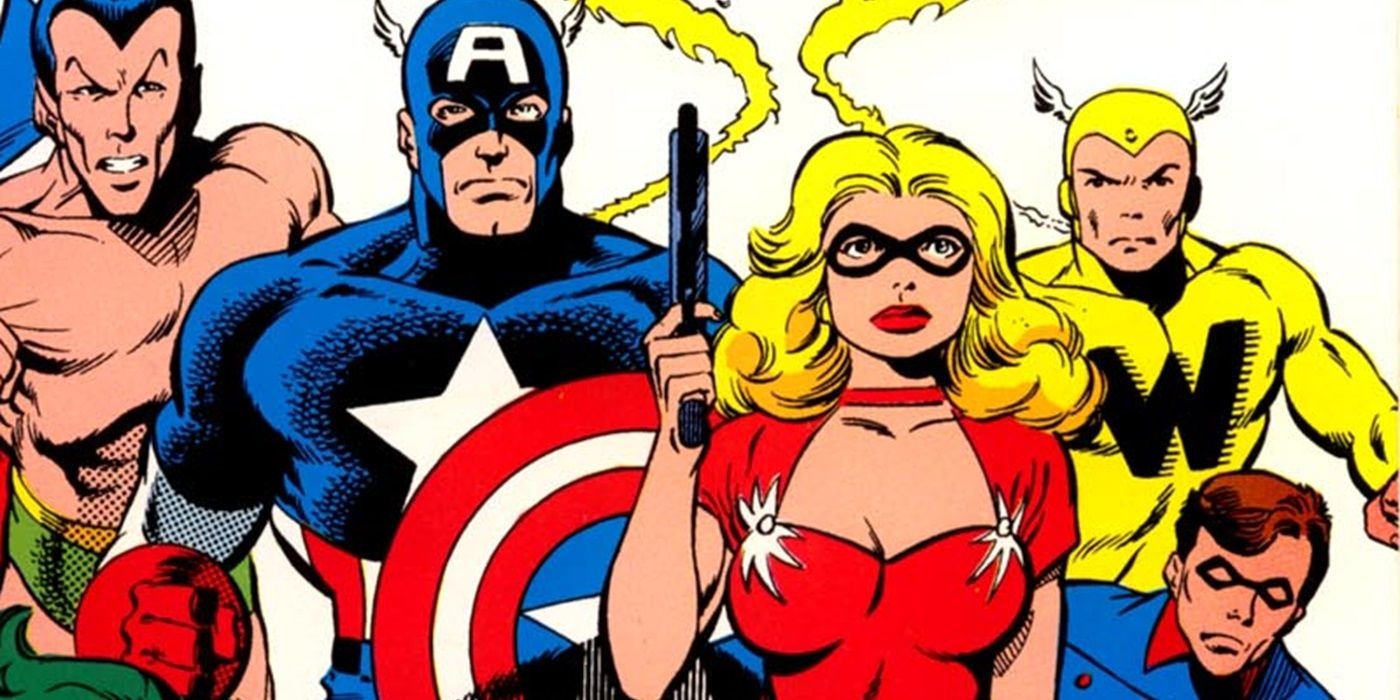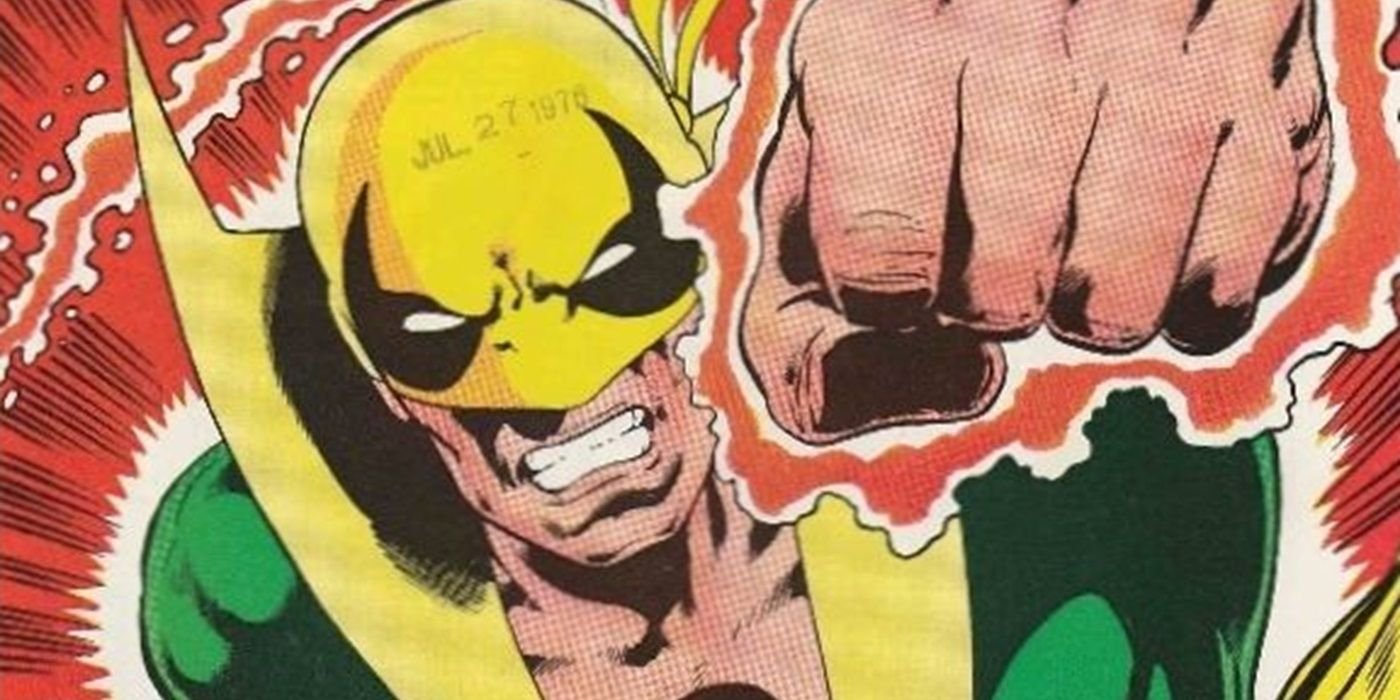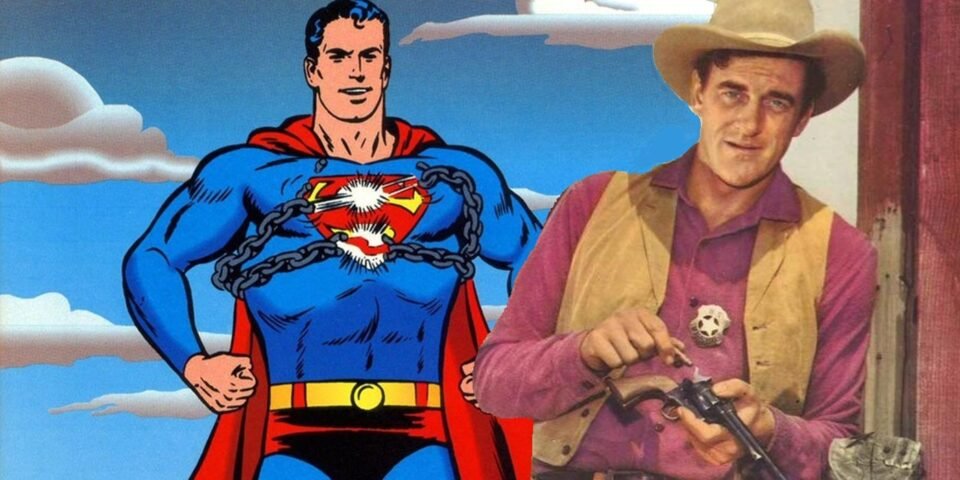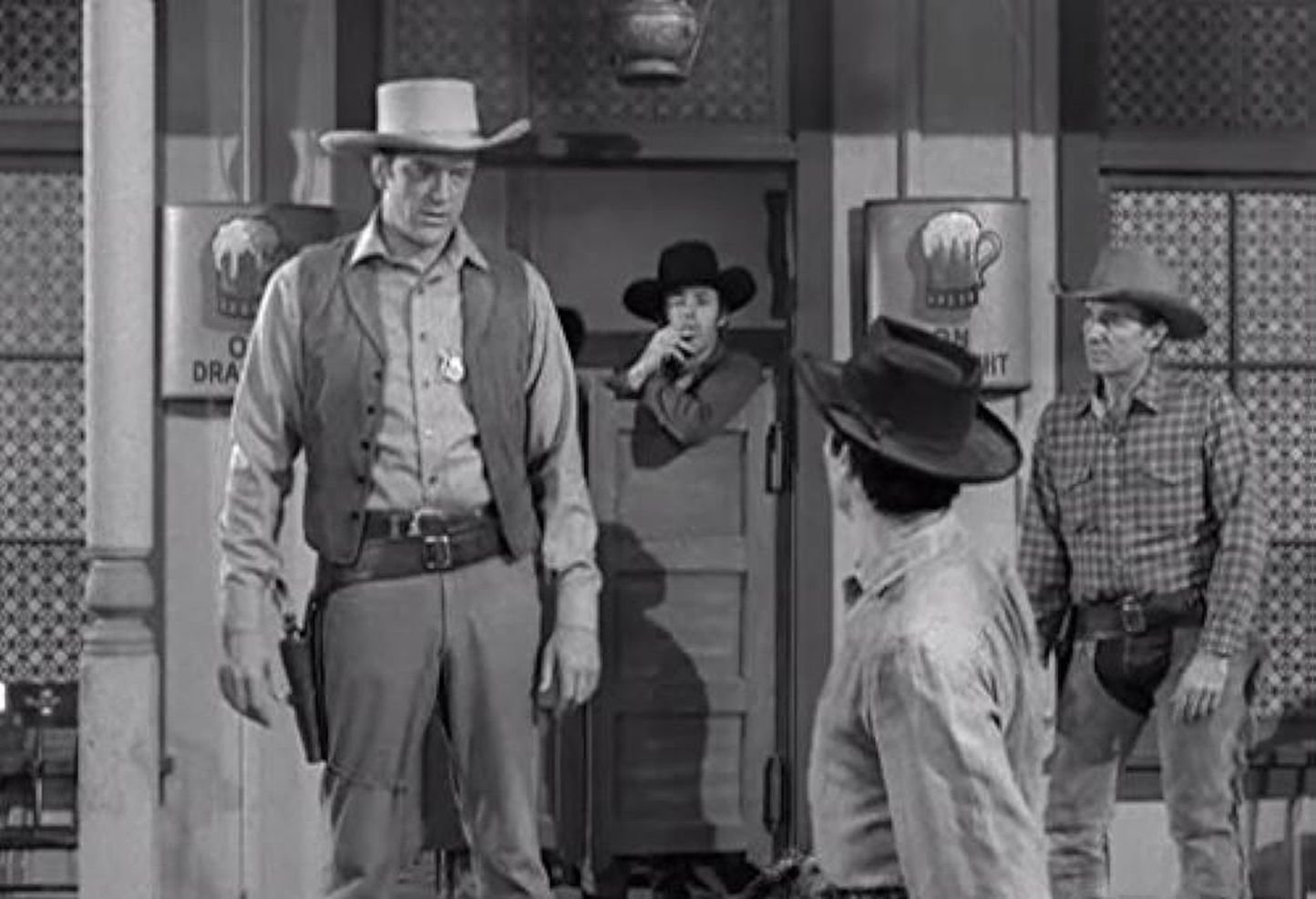Summary
- Superman and Marshal Dillon had similar codes of honor, protecting their cities with integrity and strength.
- Both heroes faced ungrateful citizens who turned on them frequently, despite always coming through in times of need.
- Their love interests were not treated as well as they should have, though, as duty to their jobs and constant danger were their excuses for never marrying.
Knowledge Waits is a feature where I just share some bit of comic book history that interests me. Today, we look at how Silver Age Superman and Gunsmoke’s Marshal Matt Dillon have a lot in common.
It’s funny, I have said this so many times over the years, but I’ve never actually written about it in an article, so I thought, ya know what, I really should at least put it in an article for posterity’s sake instead of just repeating it on social media or wherever whenever I think about it (and I think about it with an uncommon frequency).
As you’re probably aware, for many years, the most popular superhero bar none was Superman. At the end of the 1940s, superheroes, who were the kings of comic books both before World War II, and during the war, suddenly saw their sales slip big time. Yet Superman remained a hit comic book, and when he had a hit TV series in the 1950s, that helped spur on great sales throughout the 1950s, and Superman remained the top-selling superhero all the way up to the Batman TV series in 1966, and even that brief period that saw Batman take over the top spot went right back to Superman as being the tops once the Batman TV series had come and gone. It wasn’t until the late1980s that Superman was finally passed by a few different superheroes, including Spider-Man, the X-Men, and then Batman once more. In the late 1950s through the mid-1960s, though, Superman was TOPS.
Similarly, the top Western TV hero was Marshal Matt Dillon, played by James Arness, in Gunsmoke, a hit TV series that lasted from 1955-1975, but was particularly popular in the late 1950s and early 1960s, and then saw a resurgence in popularity in the late 1960s (after it was briefly canceled, but then moved to a new time slot instead, and ran another eight seasons). Bonanza was a more popular Western TV series in the early 1960s, but there were multiple lead characters on that show, while James Arness was all by himself (even if the format of the show eventually led to Arness’ co-stars taking over more of the acting load on the series in the later years. Arness still appeared in every episode of the series, though, the only actor on the series to do so).
What strikes me is how SIMILAR Superman and Marshal Dillon were during their heyday, which I’ll detail here.

Blonde Phantom Was the Wolverine of Late 1940s Marvel Comics
For a brief period in the late 1940s, the superhero, Blonde Phantom, was as prolific of a Marvel Comics guest star as Wolverine was in the 1990s
How Superman and Marshal Dillon were in a similar position, power-wise
Marshal Matt Dillon was a federal Marshal who was stationed in Dodge City, Kansas, but was also seemingly appointed by the town as the TOWN Marshal, as well (in the fourth season, there’s an episode, “The Constable,” where the town hires a Constable for the town. Now, we could read that as Dillon was a federal Marshal who just had hung out in Dodge City the most, or we could read it as Matt having been hired by the town as their town marshal, as well. I tend towards the latter, but I’ll be honest that I don’t know for sure what his deal was), and as a result, he had almost unchecked power in the area (the fact that James Arness was one of, if not THE, tallest men to ever star in a TV show, was also a major factor, as he TOWERED over everybody. He once fought a bad guy played by a former NBA player on the series, and they needed to use trick camera work to make it seem like the guy was bigger than Matt). However, Matt had a deep sense of honor, and as a result, despite having near-absolute power, he did not abuse it at all.
Sound familiar? That was basically the situation with Superman in Metropolis. The Man of Steel could have done pretty much whatever he wanted, but like Matt, he had a strong code of honor, and so always did the right thing. Both men were above reproach, while being powerful enough to really do whatever they wanted. Modern heroes always seem to ask, “Why would someone do the right thing if they didn’t HAVE to?” and characters like Superman and Matt Dillon answer the question, “BECAUSE it’s the right thing.” There really isn’t anything than that needed.
How their citizens took them for granted
Both Dodge City and Metropolis can be very dangerous places, with a lot of very bad criminals out there to cause trouble, so the citizens of Dodge and Metropolis are very lucky that they have Marshal Dillon and Superman to protect them. Superman is literally a superhuman being, while Dillon only APPEARS to be superhuman, as he almost never loses a gun fight (and he never shoots first), and he is seemingly indestructible, as he has been shot many, many times over the course of Gunsmoke.
Therefore, rightfully so, the people of Dodge City and Metropolis treat Dillon and Superman as heroes. They are frequently celebrated. However…there is also something that both cities have in common. They both turn on their heroes WAY TOO QUICKLY.
As noted, in Season 4’s “The Constable,” the town replaces Matt because they think he’s too hard on rowdy cowhands, but obviously, they quickly realize that they screwed up big time…
In Superman #128 (by Bill Finger, Wayne Boring and Stan Kaye), some “Futuremen” easily convince the citizens of Metropolis that Superman is a menace, and they all buy into it…
It’s ridiculous how much both cities turn on their heroes, and fail to give them the benefit of the doubt despite Matt and Superman ALWAYS coming through for them.

How Do Date Stamps Affect the Grading of a Comic Book?
How do date stamps on a comic book cover affect the grade of the comic book in question?
How Superman and Matt’s love interests got the short end of the stick
Both Marshal Dillon and Superman had longtime love interests. For Dillon, it was Kitty Russell, the owner of the Long Branch saloon. For Superman, of course, it was Lois Lane. In both of their cases, they told their love interests that they couldn’t marry them out of duty, as they were, in effect, married to their jobs.
Not only that, though, but that if they were their wives, they would be in danger. Here’s the thing, though – THEY WERE ALWAYS IN DANGER ANYWAYS! Guess what, dudes? The bad guys don’t particularly care if she’s Mrs. Matt Dillon or just “Dillon’s woman,” they’re still going to kidnap/attack Kitty Russell as if she WAS Matt’s wife. Same thing with Lois Lane.
The heroes really let their love interests down (in a Pop Culture References bit in the future, I’ll go further on why Matt Dillon’s position was PARTICULARLY messed up).
Now, could you draw comparisons between Jimmy Olsen and Chester/Festus, as the comic relief who you can count on in a pinch? I suppose. Or Perry White and Doc Adams as the gruff, reliable older voice? Sure, but I dunno, I think you’re edging into some “Lincoln had a secretary named Kennedy, and Kennedy had a secretary named Lincoln” territory, looking for connections for the sake of making a connection (Lincoln didn’t even HAVE a secretary named Kennedy).
So I’ll leave it at this, and I think it already says a lot as is.
If anyone has suggestions about interesting pieces of comic book history (or just random nonsense like this), feel free to drop me a line at brianc@cbr.com.


